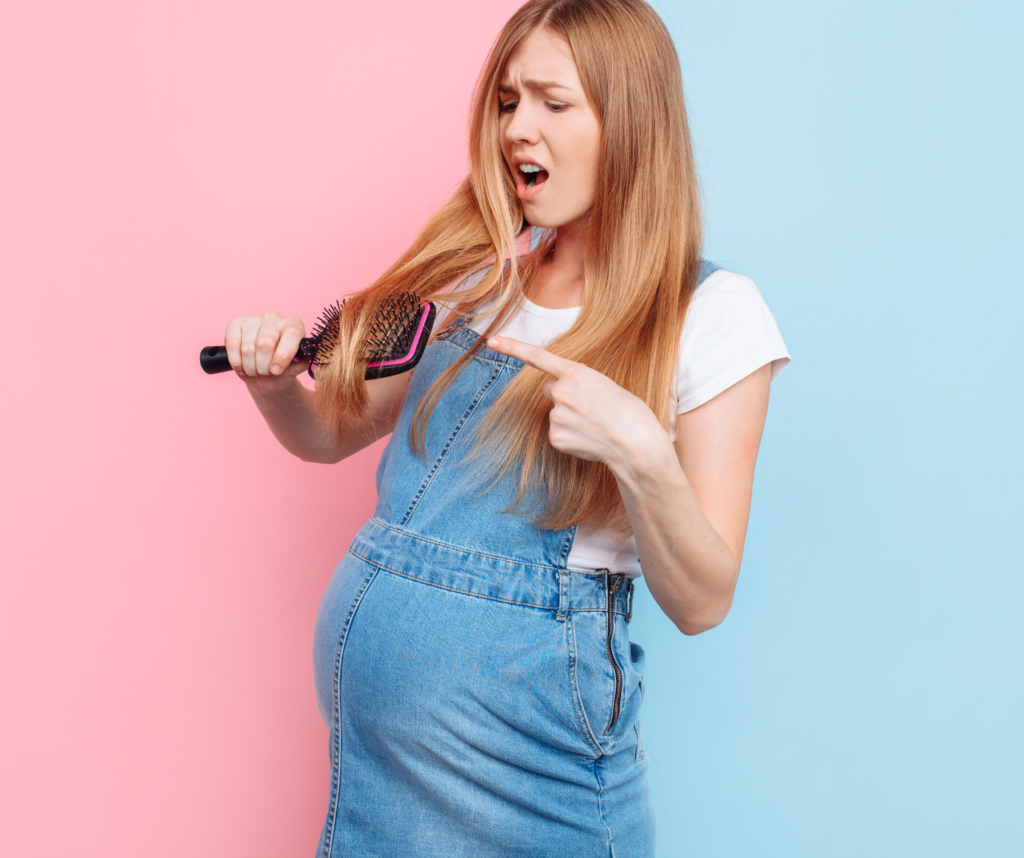
Pregnancy is a remarkable journey filled with joy, anticipation, and physical changes. While many women experience the coveted “pregnancy glow,” others may notice a less pleasant side effect: hair loss. Pregnancy-related hair loss, also known as postpartum hair loss or hair loss after pregnancy, is a common occurrence that affects many new mothers. In this article, we will delve into the causes, timeline, and ways to cope with pregnancy-related hair loss.
Causes of Pregnancy-Related Hair Loss
During pregnancy, hormonal fluctuations play a significant role in the health and appearance of your hair. Normally, hair goes through a growth cycle that includes a resting phase, a shedding phase, and a new hair growth phase. However, during pregnancy, higher levels of estrogen prolong the growth phase, resulting in thicker, more abundant hair. This can be a welcome change for many women.
Timeline of Pregnancy-Related Hair Loss
After childbirth, hormonal levels shift dramatically. Estrogen levels drop, causing the hair to enter the resting phase. Typically, around three months after giving birth, women may begin to notice an increased amount of hair shedding. This shedding is known as postpartum hair loss and can be quite alarming. Rest assured, it is a normal part of the postpartum journey. It is important to note that not all women experience hair loss after pregnancy, and the severity and duration can vary.
Coping with Pregnancy-Related Hair Loss
While postpartum hair loss may be inevitable for some, there are ways to cope with this temporary condition. Here are a few strategies that can help:
- Be Gentle with Your Hair: Avoid harsh treatments, excessive heat styling, and tight hairstyles that can cause further stress and damage to your already fragile hair. Opt for gentle hair care practices, such as using a wide-toothed comb, avoiding tight ponytails, and minimizing the use of heat styling tools.
- Nourish Your Hair from Within: A healthy diet rich in vitamins and minerals can promote hair growth and overall well-being. Include nutrient-dense foods like fruits, vegetables, lean proteins, and whole grains in your meals. Consult with a healthcare professional about incorporating supplements like biotin, vitamins A, C, and E, and omega-3 fatty acids into your routine.
- Practice Stress Management: Pregnancy and the postpartum period can be stressful. Engaging in stress-reducing activities such as meditation, yoga, deep breathing exercises, or pursuing hobbies can help manage stress levels and promote a healthy hair growth environment.
- Connect with other new mothers or join online communities where you can share your experiences and learn coping strategies. Talking to a healthcare professional or a dermatologist can also provide valuable guidance and reassurance.
- Remember that postpartum hair loss is temporary, and your hair will gradually regain its pre-pregnancy thickness. Give your hair time to recover and focus on self-care and enjoying the precious moments with your baby.
Pregnancy is already hard enough, without trying to maintain a healthy lifestyle. Contact the professionals at Parker Trichology Center and Salon for a consultation. We can help you heighten your health and your hair growth experience at our salon in Carrollton, TX. Our certified trichologists will provide you with the holistic approach to health. Contact our salon here or call 214-307-6200 to speak with a stylist today.



